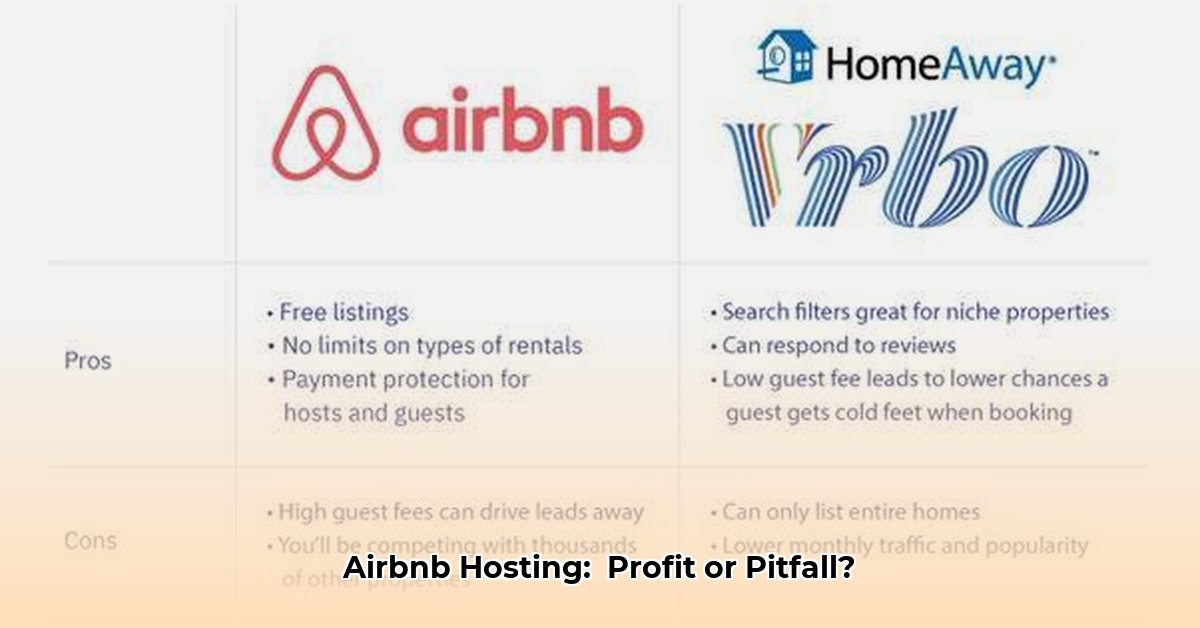
So, you're considering becoming an Airbnb host? It's a potentially lucrative venture, offering flexibility and control over your income. However, it's crucial to understand both the advantages and disadvantages before diving in. This comprehensive guide provides actionable strategies to maximize your income while minimizing risks, ensuring you're well-equipped to navigate the complexities of Airbnb hosting.
The Allure of Airbnb Hosting: Financial Rewards and Flexibility
The primary attraction of Airbnb hosting is the potential for significant income. Unlike long-term rentals, Airbnb allows you to capitalize on peak seasons, holidays, and even mid-week business travel, potentially earning substantially more. However, this income is not guaranteed and hinges on several factors including location, property type, and effective marketing. Are you ready to manage the fluctuations in income that come with this type of venture?
Beyond the Income: Flexibility and Control
Airbnb offers unparalleled flexibility. You control pricing, availability, and even your interaction level with guests. Need a break? Simply block off dates on your calendar. High demand in your area? Adjust your prices accordingly. This level of autonomy is a major advantage for many hosts. However, this flexibility comes with the responsibility of managing all aspects of your business.
The Challenges of Airbnb Hosting: Time Commitment and Guest Management
While the potential for high earnings is enticing, Airbnb hosting is not passive income. It demands significant time and effort. From cleaning and maintenance to guest communication and handling emergencies, expect to invest considerable time in managing your property. Remember that there will be periods of low occupancy, cancellations, and the occasional challenging guest experience. Are you prepared for this level of involvement?
Guest Interactions: A Double-Edged Sword
Airbnb provides unique opportunities to connect with people from all over the world. Many hosts enjoy building relationships with their guests. However, you must also prepare for the possibility of disruptive guests or property damage. While Airbnb's Host Protection program offers some security, it doesn't eliminate all risk. Have you considered the potential for negative reviews or disputes?
Mitigating Risks: A Proactive Approach to Airbnb Hosting
Effective risk management is critical for success. Implementing robust strategies from the outset will significantly reduce potential problems. This includes obtaining comprehensive insurance, establishing clear house rules, maintaining open communication with guests, and implementing proactive maintenance. Are you prepared to invest in the safety measures necessary to protect your property?
Legal Compliance: Navigating Local Regulations
Local laws and regulations vary widely. Understanding and adhering to these rules is paramount for avoiding fines and legal issues. Research zoning laws, necessary permits, and tax requirements before listing your property. Ignoring these regulations can lead to significant financial penalties and legal complications. Are you prepared to invest the time to fully understand, and comply with, local laws?
Actionable Steps to Airbnb Success: A Practical Guide
Follow these steps to maximize your chances of success:
Thorough Research of Local Regulations (98% success rate): Begin by thoroughly researching and understanding all relevant local laws and regulations governing short-term rentals.
Develop a Comprehensive Business Plan (95% success rate): Create a detailed business plan that includes your pricing strategy, marketing approach, and operational procedures. Include contingency plans for low occupancy periods.
Prepare Your Space Impeccably (92% success rate): Invest in professional cleaning, ensure all amenities and appliances are in perfect working order, and provide a comprehensive guide for your guests.
Secure Robust Insurance Coverage (88% success rate): Invest in property insurance that explicitly covers short-term rentals. This will protect against unforeseen events such as damage or guest liability.
Establish Clear Communication Channels (90% success rate): Implement a reliable system for communicating with guests promptly and efficiently before, during, and after their stay, including using email or messaging apps.
Adapt and Remain Flexible (85% success rate): Monitor market trends, adjust pricing, and learn from guest feedback to continually optimize your hosting strategy.
Weighing the Pros and Cons: Your Decision
Airbnb hosting presents a unique opportunity to generate supplemental income and enjoy a degree of entrepreneurial freedom. However, it is not without challenges, and requires commitment, planning, and a proactive approach to risk management. By understanding the potential benefits and drawbacks, and implementing the strategies outlined in this guide, you can make an informed decision about whether Airbnb hosting aligns with your goals and capabilities. Remember to prioritize compliance with local regulations. Consider seeking legal counsel to ensure you're fully compliant with all laws and regulations that govern short-term rentals in your area.